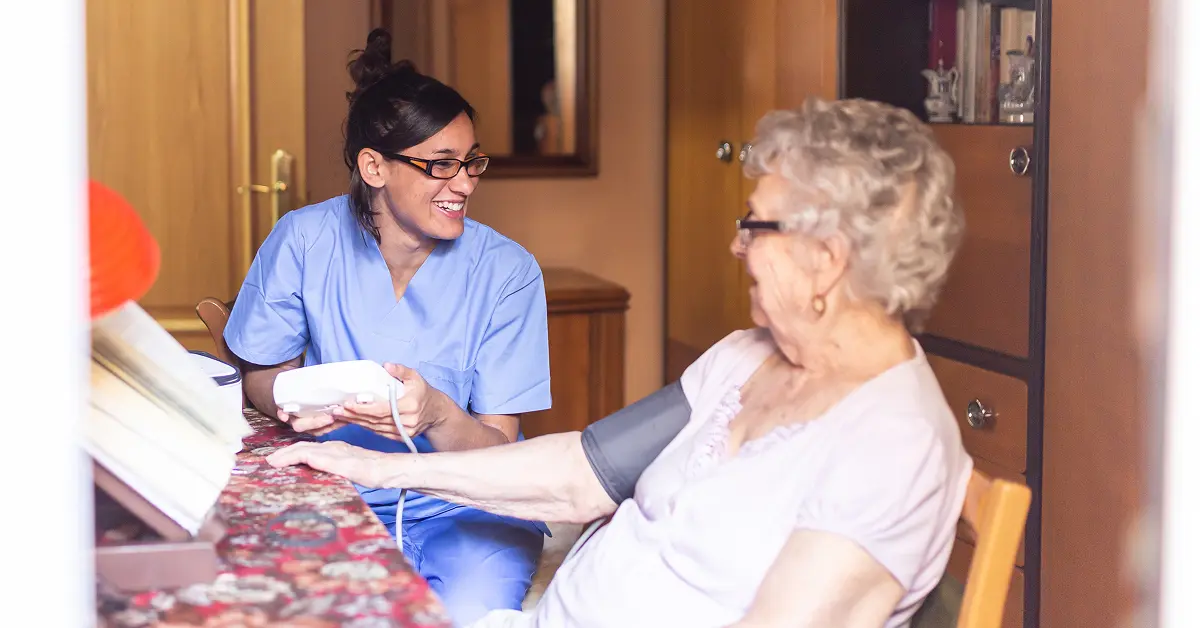Caring for ageing parents is both a responsibility and an emotional journey for most Indian families. We grow up seeing our parents as our pillars of strength, but as they get older, their health, mobility, and memory may not be as strong as before. While occasional help might be enough at first, there comes a time when daily home support becomes essential for their safety, comfort, and overall well-being.
If you’ve been wondering whether your elderly parent needs extra assistance, here are some clear signs to watch out for.
Struggling with Daily Activities (ADLs)
Activities of Daily Living (ADLs) include essential self-care tasks such as bathing, dressing, eating, and using the toilet. If your parent is finding it difficult to complete these tasks without help, it’s a strong indication that daily home support is needed.
- Wearing the same clothes for days
- Poor hygiene or skipping baths
- Unkempt hair or beard
- Difficulty buttoning shirts or wearing sarees
Why it matters: Poor personal care can lead to infections, skin problems, and a loss of self-confidence.
Frequent Falls or Balance Issues
In India, many senior citizens live in homes with stairs, uneven floors, or slippery bathrooms — all of which increase fall risks. A fall can lead to serious injuries like hip fractures, which may require long recovery times.
- Holding onto walls or furniture while walking
- Bruises or unexplained injuries
- Complaints about dizziness or unsteadiness
Why it matters: Daily support ensures your parent has someone to help them move safely, reducing the risk of dangerous falls.
Memory Loss and Confusion
Memory problems can be part of normal ageing, but if your parent is forgetting important things frequently, it could indicate dementia, Alzheimer’s, or other cognitive issues.
- Forgetting to turn off the gas stove
- Missing doctor’s appointments
- Misplacing essential items regularly
- Getting confused about time, place, or familiar faces
Why it matters: Forgetfulness can lead to safety hazards, especially if your parent is alone for long hours. Daily home support ensures someone is there to guide and remind them.
Decline in Housekeeping and Cleanliness
If you notice your parent’s home is messier than usual, with dust piling up, dishes in the sink, or clothes left unwashed, it may mean they are struggling physically or mentally to manage their space.
- Piles of unpaid bills
- Dirty kitchen counters
- Unwashed clothes or bedsheets
- Bad odour from rooms
Why it matters: A clean and organised home environment is essential for good health and mental peace. Daily help can keep the home tidy and comfortable.
Weight Loss or Poor Nutrition
Sometimes, elderly people skip meals because they are too tired to cook or forget to eat. In India, traditional meals require preparation, which can be exhausting for seniors.
- Empty kitchen shelves with little fresh food
- Expired items in the fridge
- Noticeable weight loss
- Complaints about loss of appetite
Why it matters: Proper nutrition is critical for maintaining strength, immunity, and energy. A caregiver can prepare fresh meals and ensure your parent eats on time.
Social Withdrawal
If your once-active parent has stopped meeting friends, attending family gatherings, or even speaking to neighbours, it may be a sign of depression, mobility issues, or lack of confidence.
- Avoiding phone calls or visitors
- No interest in religious or community activities
- Spending most of the day in bed or in one room
Why it matters: Social interaction keeps the mind sharp and prevents loneliness. A daily caregiver can encourage activities and companionship.
Medication Mismanagement
Many elderly people in India take multiple medications for conditions like diabetes, blood pressure, and arthritis. Missing doses or taking the wrong medicine can lead to serious health complications.
- Unopened medicine strips
- Confusion about which medicine to take when
- Taking expired medicines
- Repeated hospital visits due to avoidable issues
Why it matters: A daily home support person can organise medicines, give reminders, and ensure your parent never misses their prescriptions.
Increased Medical Needs
If your parent requires regular blood pressure checks, insulin injections, or wound dressing, they may not be able to manage these alone safely.
- Frequent hospital visits
- Inability to follow medical advice
- Difficulty using medical devices like glucometers
Why it matters: Having someone trained at home reduces hospital trips and ensures timely care.
Emotional Distress or Depression
Ageing can be emotionally challenging, especially when physical abilities decline. If your parent appears sad, irritable, or hopeless most of the time, it could be a sign they need emotional and practical support.
- Loss of interest in hobbies
- Sudden mood swings
- Talking about being a burden
- Crying easily
Why it matters: A supportive caregiver can provide companionship and emotional comfort, improving mental well-being.
You Are Feeling Overwhelmed
Sometimes, the sign is not in them — but in you. If you are constantly stressed, juggling work, family, and caregiving, it’s a clear indication you need help.
- Physical exhaustion
- Neglecting your own health
- Feeling guilty or frustrated
- Reduced productivity at work
Why it matters: Getting daily home support ensures your parent receives consistent care without compromising your own well-being.
Benefits of Daily Home Support for Ageing Parents
- Safety & Security: Constant supervision reduces accidents.
- Better Health: Timely meals, medicines, and hygiene support improve overall health.
- Peace of Mind: You can focus on your life knowing your parent is cared for.
- Emotional Comfort: Companionship reduces loneliness.
How to Arrange Daily Home Support in India
- Hire a Trained Caregiver: Look for professional home care agencies that provide verified and trained staff.
- Choose Live-in or Daytime Care: Depending on your parent’s needs, you can choose 24-hour care or help during the day.
- Check Credentials: Always verify background, training, and experience before hiring.
- Start with a Trial Period: Ensure the caregiver is a good match for your parent’s personality and needs.
Final Thoughts
Your ageing parent may not always ask for help, but their daily struggles can silently affect their health, safety, and happiness. Recognising the signs early can prevent accidents, health decline, and emotional distress. In Indian families, love and respect for elders are deeply rooted, and providing them with daily home support is one of the best ways to honour them.
Remember, getting extra help does not mean you love them any less — it means you love them enough to ensure they live their later years with dignity, comfort, and care.
Contents
- Struggling with Daily Activities (ADLs)
- Frequent Falls or Balance Issues
- Memory Loss and Confusion
- Decline in Housekeeping and Cleanliness
- Weight Loss or Poor Nutrition
- Social Withdrawal
- Medication Mismanagement
- Increased Medical Needs
- Emotional Distress or Depression
- You Are Feeling Overwhelmed
- Benefits of Daily Home Support for Ageing Parents
- How to Arrange Daily Home Support in India
- Final Thoughts
Our 24*7 services
Latest Posts
- What Is Respite Care and Why Is It Important
- Affordable home care for senior citizens in India
- Caring for Seniors with Dementia or Alzheimer's at Home
- Senior Caregiving A Guide for Every Family
- How to Write a Caregiver Resume That Gets You Hired
- How Care After Hospital Discharge Speeds Up Recovery at Home
- How to Get Home Health Care for Seniors Through Medicare
- What Does a Senior Citizen Caregiver Really Do at Home
- How to Care for Elderly Parents with Alzheimer’s or Dementia
- How to Get 24-Hour Care for Seniors at Home


